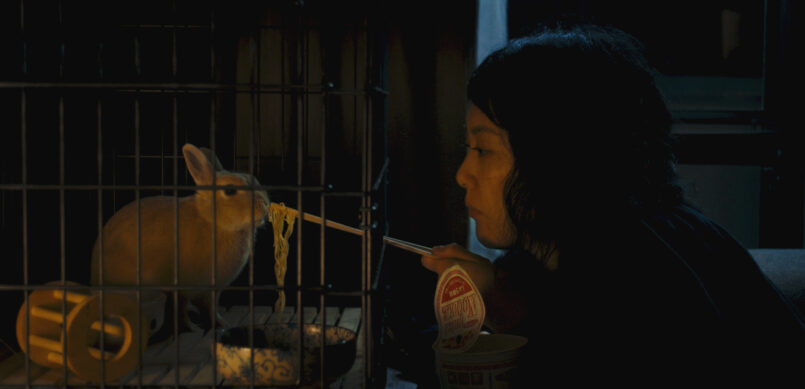“THIS IS A TRUE STORY,” are the words that open David Zellner’s Kumiko, the Treasure Hunter. These are the same words that opened the Coen brothers’ 1996 neo-noir classic Fargo—the exact same words in fact, filmed off of a television screen playing a snowy VHS tape of the film. This photocopy of a photocopy opening is fitting, as Kumiko, also “based on a true story,” is less a biopic than an imagining of circumstances that would lead to the creation of an urban legend. Because the “true” story that Kumiko is based on is just that—an urban legend, no truer than Carl being fed to a wood chipper. (That Fargo’s claim of veracity is used to stand in for Kumiko’s is a cheeky nod to that fact.)
But for all this talk of truth, all that really matters is that the film makes it feel true. Watching Kumiko (Rinko Kikuchi) rewind and replay the same, battered old VHS tape to make her Etsy-worthy, cross-stitched treasure map, for all its absurdity, feels plausible. This is due in large part to Kikuchi’s deadpan performance. Her ability to convey stagnation and disillusionment is remarkable—you can actually see Kumiko’s eyes go dead when she runs into an old acquaintance in the street, or when her mother asks if she has a boyfriend yet, or when her boss says literally anything to her. Her life isn’t terrible, but it isn’t great, and if you’ve ever had a job you hated or hidden to avoid running into someone you knew in high school, putting yourself in Kumiko’s shoes really isn’t that much of a stretch. Even knowing how her treasure hunt has to end, knowing that she’s probably a little unhinged, you root for her. Misguided as Kumiko’s journey is, it feeds into a fantasy most of us have had of walking away—not quitting a job, but leaving it—with no notice and no plan.

Rinko Kikuchi as “Kumiko” in Kumiko, the Treasure Hunter.
The film features a rabbit named Bunzo eating ramen (if that alone doesn’t make you want to see it, just stop reading here) and a stunning score by The Octopus Project, but it really starts to shine in its second act, when our protagonist finally makes it to Minnesota. From the awkward airport evangelicals who give her directions, to the well-intentioned police officer who takes her to a Chinese restaurant in hopes of finding a Japanese translator (apparently this part of the story actually happened), Minnesota seems to be populated entirely by hilarious strangers who facilitate a much-needed shift in tone just as the ennui of the first act threatens to wear thin.
Tempting as it is to make Coen comparisons, especially considering the subject matter, the Zellners (the film was directed by David, and co-written with his brother Nathan) don’t seem capable of being as mean-spirited as the Coens often are. As a result, Kumiko is closer in tone to Craig Gillespie’s Lars and the Real Girl. Like Lars, Kumiko’s situation is undeniably ridiculous, but she is never the butt of the joke. The laughs come from a place of empathy, because even if the story isn’t “true,” it’s human—and we’ve all been there. FL









